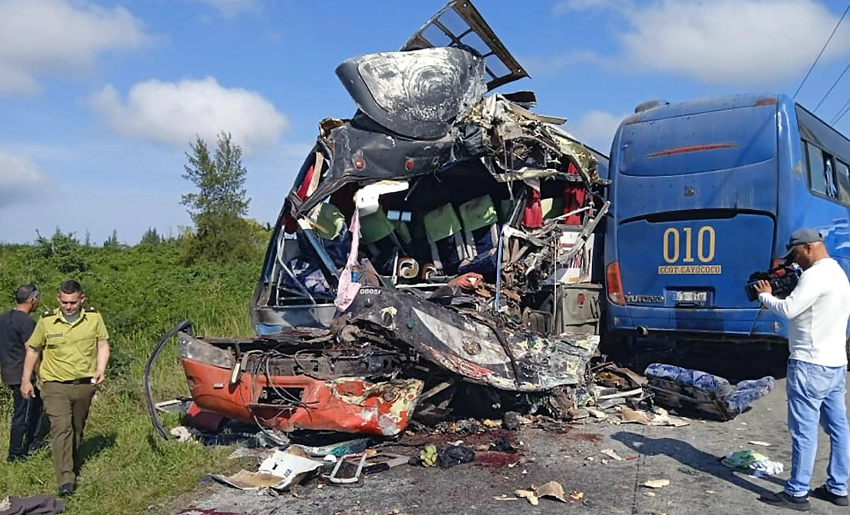At the close of the January-May period, Cuba reported a decrease in traffic accidents and injuries, while the number of fatalities increased amid the sustained growth of the vehicle fleet, primarily vulnerable vehicles such as motorcycles and scooters.
The analysis of accidents, their causes and conditions, with an emphasis on the planned actions for the summer, was the focal point of a meeting of the National Road Safety Commission, which was led by Jorge Luis Tapia Fonseca, Deputy Prime Minister, and Eduardo Rodríguez Dávila, Minister of Transport, via videoconference across the country this Monday.
Colonel Roberto Fernández Rodríguez of the General Directorate of the Revolutionary National Police specified that in Villa Clara, Ciego de Avila, and Cienfuegos, all three indicators had increased, with the situation is most complicated in the first two provinces that, along with Havana, also record the highest increases in deaths.
He explained that the latter was mainly caused by incidents with serious consequences such as pedestrian accidents and the involvement of motorcycles and mopeds.
According to the source, the main causes of accidents continue to be related to human factors. Among them, not paying due attention to vehicle control, which is present in 30 percent (%) of the incidents.
Meanwhile, the number of injured was higher and the greatest danger of fatalities was recorded in Holguin. The disregard for the right of way shows an increase in the three aforementioned indicators, more pronounced in the victims, while Ciego de Avila, Santiago de Cuba, and Villa Clara report the most unfavorable results, having grown in all parameters.
Speeding was also one of the causes that led to the increase in accidents, injuries, and fatalities, with the latter increasing in Havana and Matanzas. The representative of the General Directorate of the Police emphasized that accidents due to technical failures of vehicles decreased. From January to May, 77,773 technical inspections were carried out, detecting 22,131 vehicles with deficiencies, which led to 92% of drivers being fined, approximately 20,399.
The source pointed out that 114 registration violations were detected and 1,528 traffic circulations were withdrawn for not having the vehicle’s technical inspection certificate.
It was reported that accidents caused by driving under the influence of alcohol decreased, while Camagüey reported unfavorable figures in all three indicators.
The number of cycles and bike taxis increased their involvement in accidents, and in response to this situation, about eight thousand fines were issued under Law 109, along with 818 decrees, 57 warnings, and 67 circulation prohibitions.
Additionally, 541 undocumented individuals were detected, 487 without operating licenses, and 595 were found driving on unauthorized roads. The number of accidents with severe consequences was higher, affecting six regions of the country, with the greatest complexity noted in Santiago de Cuba, Villa Clara, and Camagüey.
The main causes were failure to respect right of way and lack of attention to vehicle control. Colonel Roberto Fernández Rodríguez pointed out that as part of the strict enforcement, 1,416 administrative measures to suspend driving licenses were also implemented.
The courts imposed 17 accessory sanctions. 78 cancellations were made, mainly for failing to pay the fine after serving the penalty and for repeated driving under the influence of alcohol.
Generally speaking, he said, accidents are being contained, and efforts continue to increase prevention and address the main causes that generate them, with a priority on incidents with serious consequences, as motorcycles and mopeds contribute the highest number of fatalities.
In the meeting, the deputy prime minister and the minister of transport pointed out that in order to continue reducing accidents and road indiscipline with the approach of the summer season. A meticulous review of roads, including railways, and of mass transportation means especially is urgent.
With information from CNA
Translated by Aliani Rojas Fernandez
- Medical Equipment in Holguin Guaranteed to Be in Operation - 12 de February de 2026
- Aid Arrives in Cuba from Mexico - 12 de February de 2026
- Tauba Holmotor in Holguin Expands Production Through Innovation - 12 de February de 2026

